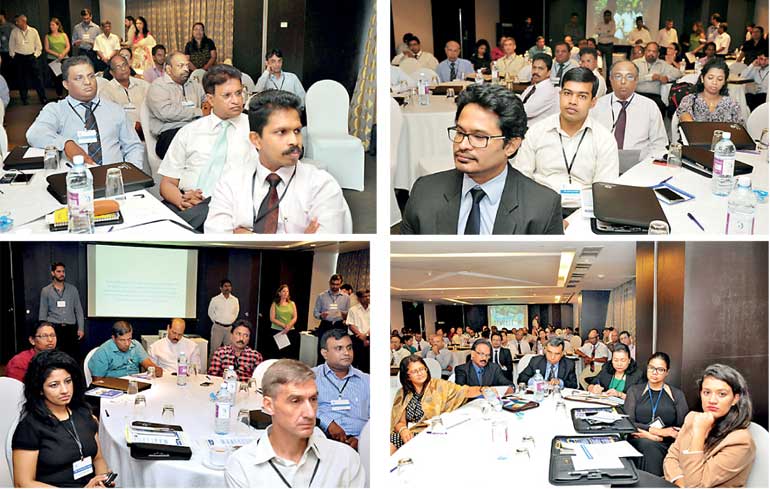Monday Mar 02, 2026
Monday Mar 02, 2026
Tuesday, 5 April 2016 00:15 - - {{hitsCtrl.values.hits}}
By Shannine Daniel
Lanka Social Ventures (LSV) CEO Lalith Welamedage revealed that there is a great need for student loans in the vocational training and skills development sector of the country.
At present there are no such loan schemes for vocational training and skills development by any mainstream banks and microfinance institutions, stated Welamedage, addressing a Symposium on Access to Finance for Private Technical and Vocational Training Providers and Students held last week
“We have to start from somewhere and our research has shown us that there is a high demand for student loans and several mechanisms need to be put into place to facilitate vocational training,” he stressed.
Getting a loan for education is much more difficult for those living in rural and marginalised communities, than those living in the urban areas, added Welamedage.

“When we look into the banking sector there are loan schemes for education but only collateral based personal loans, which can vary from Rs. 500,000 to Rs. two million. But here we are talking about much smaller loans. When it comes to vocational training the cost is about Rs. 3,000 ranging up to about Rs. 150,000,” he opined.
He went on to say that several microfinance institutions such as Sarvodaya were keen to facilitate these types of loan schemes provided that there was a guarantee of recovery as the research conducted also revealed that microfinance institutions were more favoured than mainstream banks. This is because they operate in rural areas, with low income earning communities and it is easier for these institutions to recover their loans because of the ‘mutual guarantee system’.
Central Bank Regional Development Department Director Asoka Handagama stated that there was one loan scheme currently available for the vocational training sector, the self employment promotional initiative, through which finances are provided to graduates to start their own businesses.
“However, this mainly targets the private university educated graduates and there is no loan scheme for State university educated students anymore,” he said.
Out of the total number of students who sit for the Advanced Level exams each year, only about 8% will go to universities whereas about 46% are left without any access to higher education and some of them may enrol in Government training institutions. There is therefore a huge demand in this sector but the question of providing the necessary finances to students remains to be answered, opined Handagama.
“We are currently having discussions with the ADB to establish an independent credit guarantee fund, which should be functional by the end of this year, hopefully and it will be huge opportunity for this sector,” he asserted.
Welamedage affirmed that there is a greater role for the Central Bank to play in this matter because skills development is essential for the country’s development.
“The Central Bank needs to take the leadership in developing such a loan scheme or a credit scheme for skills development and vocational training. Other institutions such as banks and microfinance institutions need to get involved as well,” he stressed.
“We can explore the possibility of getting the EPF involved with this process as well,” he stated.
He added that a student loan institution could be set up. “ In countries like the UK, USA, and other developed countries there are several loan companies operating very successfully providing loans for students for higher education and vocational training at a very reasonable rate,” he added. Welamedage noted that a student loan company could be set up with the leadership of the CB, with funds obtained from the ADB, CSR funds, the Government grant and the loan equity from the Central Bank and the equity from commercial banks and microfinance institutions.
“The loans can be distributed by the mainstream banks, microfinance institutions and even the relevant education institutions and universities,” he added.
– Pix by Lasantha Kumara
